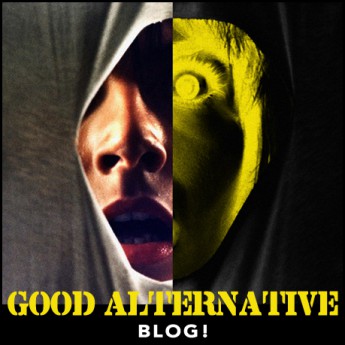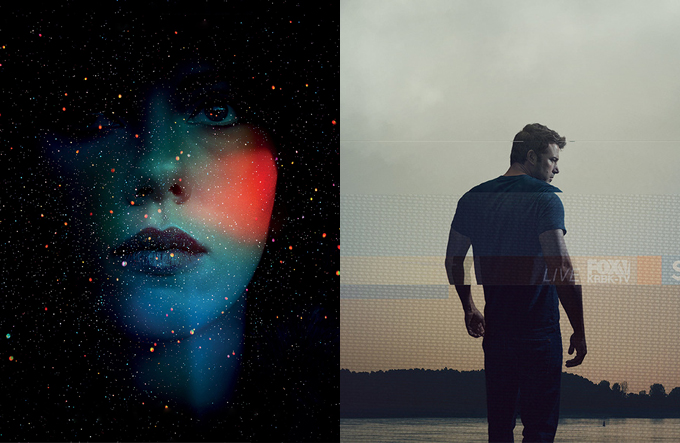When listening to an original movie score I often wonder what it is that draws me to re-visit it outside of its intended accompaniment to an overall viewing experience. As appose to a soundtrack built out of existent songs, such as the feel good nostalgia heavy yester-pop of Guardian’s Of The Galaxy, an original movie score does not contain any pre-attained social signifiers to riff off or subvert. Guardian’s Awesome Mix was a tool for indicating not only the time from which Quill originated from but also how far he was from home (both the songs and the means of listening to them – a cassette tape). But, while it is a grand selection of tunes and has probably exposed a younger generation to a series of older classics, it is still possible to listen to Cherry Bomb without thinking of a gun wielding racoon (just about).
This is the fundamental difference between a ‘Music From The Motion Picture’ soundtrack and an original score: a direct link with, and signifier of, the atmosphere of a movie. It aids in creating the mythos of the world the story is set in and can transport a listener to that place without actually watching the movie itself.
One of 2014’s strongest soundtracks, Gone Girl, was extremely successful at this and was almost destined to be so as a result of the workflow Trent Reznor and Atticus Ross take in composing soundtracks together. For The Social Network, their first ever film score collaboration, and first collaboration with Fincher, Reznor’s and Ross’ lack of film scoring experience led them to create a series of extended mood-scapes from the tone they felt reading the film’s script. As appose to writing themes for characters or even scoring scenes, they composed music which fitted into, and reflected, the world the story was revolving around (source). The results won them an Oscar, and their approach continued into subsequent Fincher projects The Girl With The Dragon Tattoo and, most recently, Gone Girl.
The tone throughout Gone Girl is one which holds an unsettling air that things are not ever what they seem. There is a sinister underside to every seemingly sincere moment, with the movie’s first half in particular suggesting an artificial quality underpinning all of the sentimental flashbacks. The soundtrack captures this perfectly. Drifting ambient tones create a feeling of unease, calculated and methodical but remaining inscrutable (embodying the opening lines of the movie: “What are you thinking? How are you feeling?”). Even some of the sweeter melodies feed slowly into building waves of aggressive distortion which engulf and mute the harmonies.
The best example of this is the track Gone Home. It starts so innocent, almost wholesome, seeming to invoke a feeling of love enduring and uniting all. But the notes slowly begin to drift off-key, and the static swells up into a schizophrenic mess that abruptly cuts off to restrain and re-compose itself. In creating their world reflecting mood-scapes, it would seem that Reznor and Ross have inadvertently created one of the character’s themes after all.
Another interesting origin to one of the year’s soundtracks was Christopher Nolan’s space epic, Interstellar. Hans Zimmer was brought in once again to score and has spoken of Nolan approaching him before production even began with one page of typed dialogue depicting a message from a father to a child, asking him to produce a piece of music inspired by that. From this, Zimmer composed the main theme to Interstellar without ever knowing the plot or that it contained any sci-fi elements whatsoever (source).
Once fleshed out and worked around, the soundtrack to Interstellar reflects very much the ambitions of the story. The comparisons to 2001: A Space Odyssey are apparent, and the soundtrack does have those long powerful organ notes that emulate the closing of Also Spranch Zarathustra, but Interstellar attempts to inject a deeper emotional element than Kubrick into both its story and, subsequently, its soundtrack. It is a story not only about discovery but what is left behind, the relationship between families and generations and the bonds they create being infinite and unquantifiable. The “epicness” of the film stems from a small emotional core, and while Zimmer’s grand booming orchestrations very much match the striking cosmic visuals, the main refrain directing much of the soundtrack is a heartfelt melody that is played as both a subdued melancholy piano piece and a great organ crescendo head rush.
From grandeur to minimalism (and my personal pick for best soundtrack of 2014), Under The Skin took the polar opposite approach to science fiction in almost every way from Interstellar. Fantastically dark and subtle while remaining ambiguous enough as to maintain respect for its audiences’ intelligence, Jonathan Glazer’s film saw a malignant alien masquerading as a beautiful woman, roaming the streets of Glasgow seducing men whom she traps and harvests for their meat. The film takes a methodically slow approach, drenched always in the waking presence of dread.
A unique film which is accompanied by a wholly unique soundtrack. Mica Levi, of Micachu and The Shapes fame, was commissioned to create the score after Glazer heard her Chopped and Screwed project with the London Sinfonietta, which, as the name may suggest, involved warping and looping various sounds into a disorientating assembly (source). Her work on Under The Skin certainly carried over this same mentality of experimentation, with shrill violins playing out a chilling three note refrain distorted and pitch shifted over a dark minimalist rhythm. The whole effect is one of constant unease, watching as men helplessly submit to the forces of seduction from an alien intruder, blissfully unaware of their own impending demise.
The track Lipstick To Void best demonstrates this. With very little dialogue and absolutely no hand-holding in its execution of the story, the film really relies on Levi’s soundscapes like this to bridge the gaps and give viewers the suggestion of events through the ambience. The muted drums slowly giving way to the hypnotic strings, it sounds alluring, almost erotic, but all the while carrying a sinister femme-fatale edge to it that forebodes the piercing pitch bends towards the end.
Those were some of my favourite soundtracks of 2014. Here are a few I’m looking forward to hearing in 2015 (both original and not):
– Inherent Vice, Jonny Greenwood (Not yet released in UK)
– Birdman, Antonio Sanchez (Not yet released in UK)
– Enemy, Danny Bensi & Saunder Jurriaans (Not yet released in UK)
– Star Wars Episode 7, John Williams
– Hateful Eight, Various
– Knight Of Cups, Various

